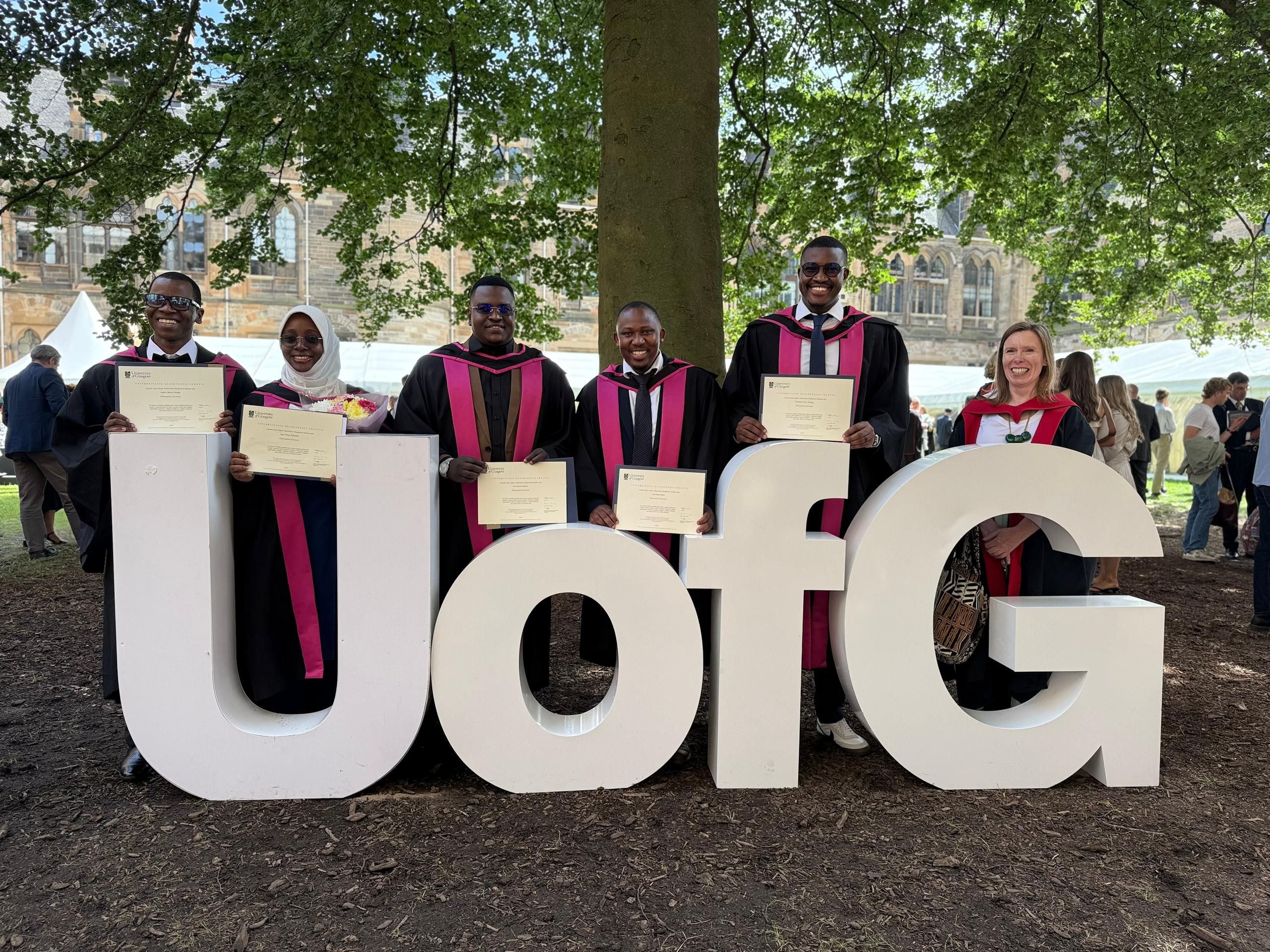
ACHIEVEMENT: Ifakara celebrates five new PhD graduates from University of Glasgow

The Ifakara Health Institute is proud to celebrate a major academic milestone: five of our research scientists have officially graduated and walked the stage to receive their PhDs at the University of Glasgow, one of the world’s leading research universities in the UK on July 8 2025.
We proudly recognize Dr. Issa Hassan Mshani, Dr. Joel Odero, Dr. Najat Feruzi Kahamba, Dr. Andrea Kipingu, and Dr. Emmanuel Peter Mwanga—whose research reflects the innovation, excellence, and commitment at the core of Ifakara’s mission to advance public health.
This milestone also reinforces the long-standing partnership between Ifakara and the University of Glasgow—a collaboration that continues to empower scientists and drive transformative health research in Africa and beyond.
Meet the Graduates
Dr. Issa Hassan Mshani
Issa’s research focused on applying artificial intelligence to improve malaria diagnosis and surveillance. Through the Deep Diagnostics Program at Ifakara, he led the development of AI-powered screening tools capable of analyzing microscopy images and supporting rapid field diagnosis. His innovations were tested across more than 40 villages in Tanzania, demonstrating real-world potential to close diagnostic gaps in malaria-endemic regions.
Dr. Joel Odero
Joel's PhD work contributed to the genomic understanding of major malaria vectors in Africa. His research explored the population genetics and evolutionary dynamics of Anopheles mosquitoes, providing critical insights into how vector populations adapt to control strategies and environmental pressures. His findings are helping to inform more targeted and sustainable approaches to vector control.
Dr. Najat Feruzi Kahamba
Najat's research investigated insecticide resistance mechanisms in malaria vectors, with a focus on the biochemical and molecular pathways that enable mosquitoes to survive conventional control tools. Her work contributes to the growing body of evidence needed to design next-generation vector control strategies, particularly in high-resistance zones across sub-Saharan Africa.
Dr. Emmanuel Peter Mwanga
Emmanuel's research centered on the development and application of novel surveillance tools for neglected tropical diseases, with an emphasis on onchocerciasis. His studies tested innovative field technologies and experimental approaches for tracking transmission patterns, improving early detection, and supporting elimination efforts. His work laid the foundation for expanded collaborations across several African countries and global partners.
Dr. Andrea Kipingu
Andrea's research used mathematical modelling to evaluate the impact of vector control interventions in both semi-field and real-world settings. His work focused on population dynamics and the predictive performance of control tools under varying ecological conditions. The findings are being used to optimize the design and deployment of vector control strategies across diverse transmission settings.
To our new PhD holders—Issa, Joel, Najat, Andrea, and Emmanuel—we celebrate your achievements and look forward to the many ways your work will shape the future of public health.
About the University of Glasgow
Founded in 1451, the University of Glasgow is one of the oldest and most respected research universities in the English-speaking world. It is known for its cutting-edge work in biomedical sciences, global health, and public policy. Learn more about the university here.
